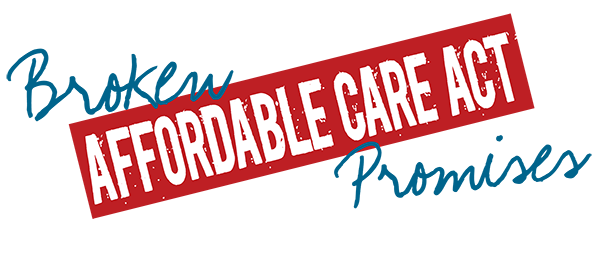The Affordable Care Act (ACA) needs the state-based exchanges, or “marketplaces,” to function. These exchanges were intended to replace the individual market for health insurance policies. But in recent weeks, insurance companies have released a deluge of bad omens, including financial losses and market exits, which signal that the exchanges are in bad shape. As a result, Americans can expect a reduction in consumer choice and increase in prices in the years ahead.
The demise of the exchanges should concern us all, as consumers and taxpayers. Some will suggest that government bailouts or takeovers of the insurance industry are necessary, but the right solution is just the opposite: We should offer more choices in individual insurance policies, not fewer, and rely on market competition to put downward pressure on price.
UnitedHealth is leaving most of the state-based exchanges next year, citing financial losses. Other insurers have released data on their exchange woes, including a report from BlueCross BlueShield showing new enrollees under Obamacare in 2015 had 22 percent higher medical costs than people who received coverage from employers. This may signal premium increases for BCBS plans in 2017.
Cigna and Anthem are planning to merge; so are Humana and Aetna. While these companies await government approval of their mergers, they’ve remained mostly quiet on their plans for the exchanges, although just this week Humana mentioned possibly raising premiums or exiting some markets next year.
And now the large insurers are suffering, too. They priced their plans too low for 2014, 2015 and 2016. This may surprise many individual-market consumers, who know the enormous price tags for ACA plans, which are far higher than pre-ACA premiums. But given what we know now about the pools of people buying in the exchanges, we know that prices should have increased by even moreto cover the related claims.
In 2017, some insurers hope to raise premiums dramatically to avoid more financial losses, like those they’ve sustained during the first three years of the exchanges.
The biggest losers will be two groups. First, unsubsidized exchange customers (those who make too much money to qualify for government help) will feel premium increases acutely. Second, taxpayers will shoulder most of the premium increases for subsidized customers, as the formulas that determine their share of their premiums are based in part on a percentage of their incomes. In other words, as premiums go up, so do the subsidies available to most exchange customers.
Some insurers and lawmakers blame Republicans for the exchanges’ failures. Republicans made one significant change to the ACA’s “Risk Corridor” program — a program intended to provide financial help to insurers with riskier pools than anticipated. The change, included in budget legislation, made the program budget neutral. In other words, Republicans prevented taxpayer dollars from “bailing out” these insurance companies.
But an industry or business cannot blame their troubles on the lack of a bailout. Instead, the real culprit is the high cost of compliance with the ACA.
Under the law, insurance companies must offer coverage to anyone. They cannot use various risk-related characteristics, like gender, health status or history, to price premiums. They are even limited to the extent they can use age to offer different prices. This makes it nearly impossible for insurers to manage risk.
Furthermore, all plans must cover a laundry list of “essential health benefits” determined by the Department of Health and Human Services. While these new required benefits may help some consumers, they represent standardization of the plans offered, a limitation on choice. Some consumers would surely prefer cheaper, leaner health coverage instead.
The solution to the increasingly limited choices and higher prices in the exchanges is obvious: The government should not be dictating what plans cover or how they are priced. The administration calls the exchanges “marketplaces,” but until consumers have meaningful, competitive choices in plans, this is a misnomer.
Hadley Heath Manning is health policy director at Independent Women’s Voice. Thinking of submitting an op-ed to the Washington Examiner? Be sure to read our guidelines on submissions.
